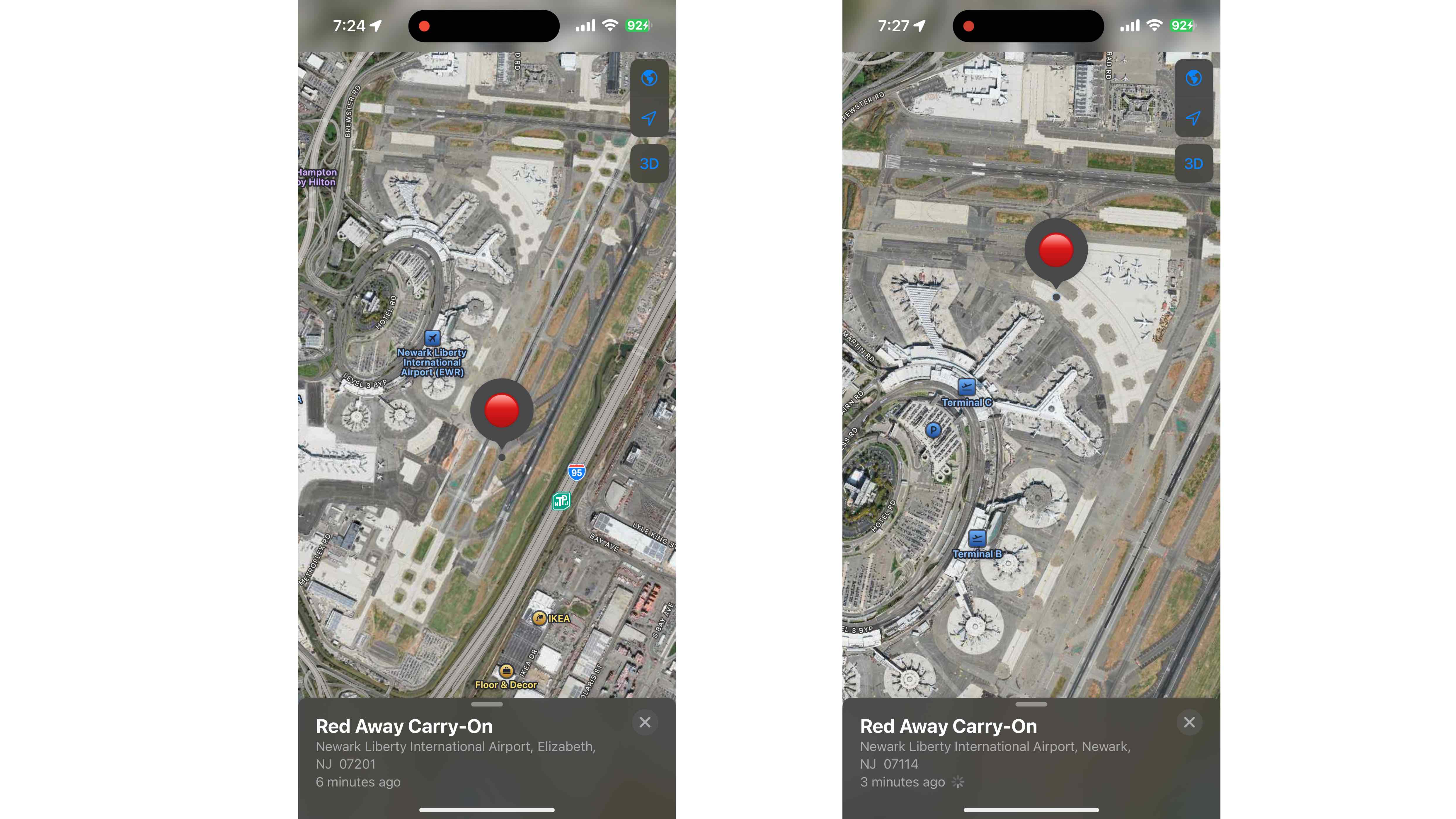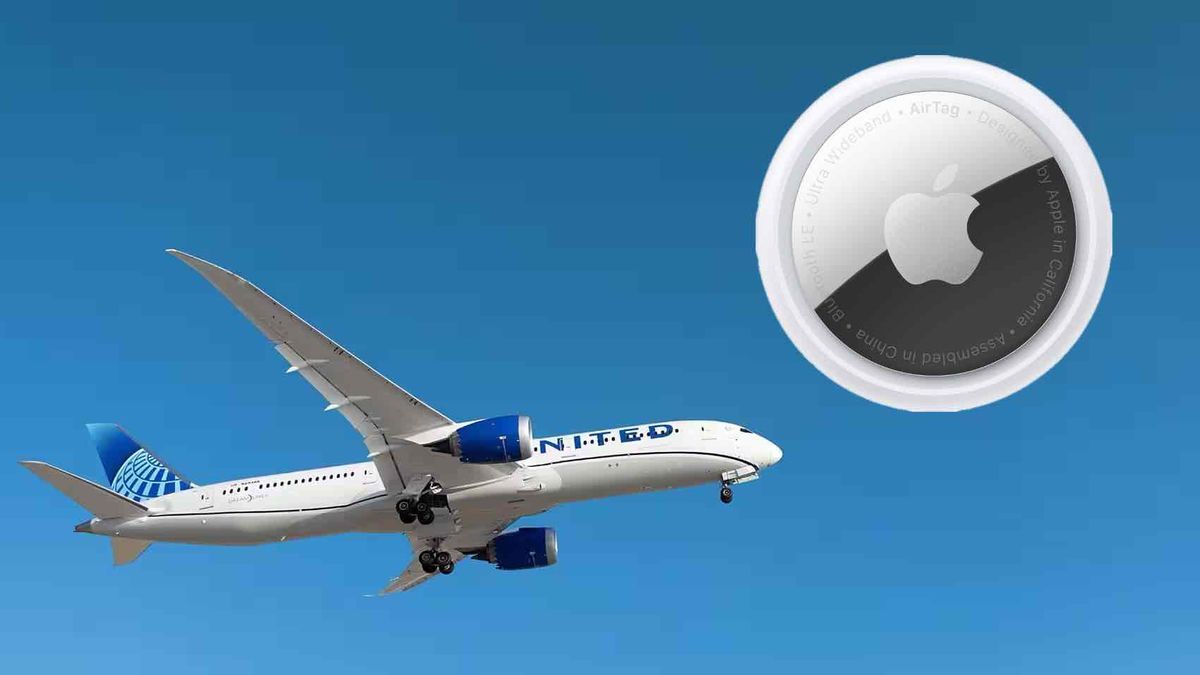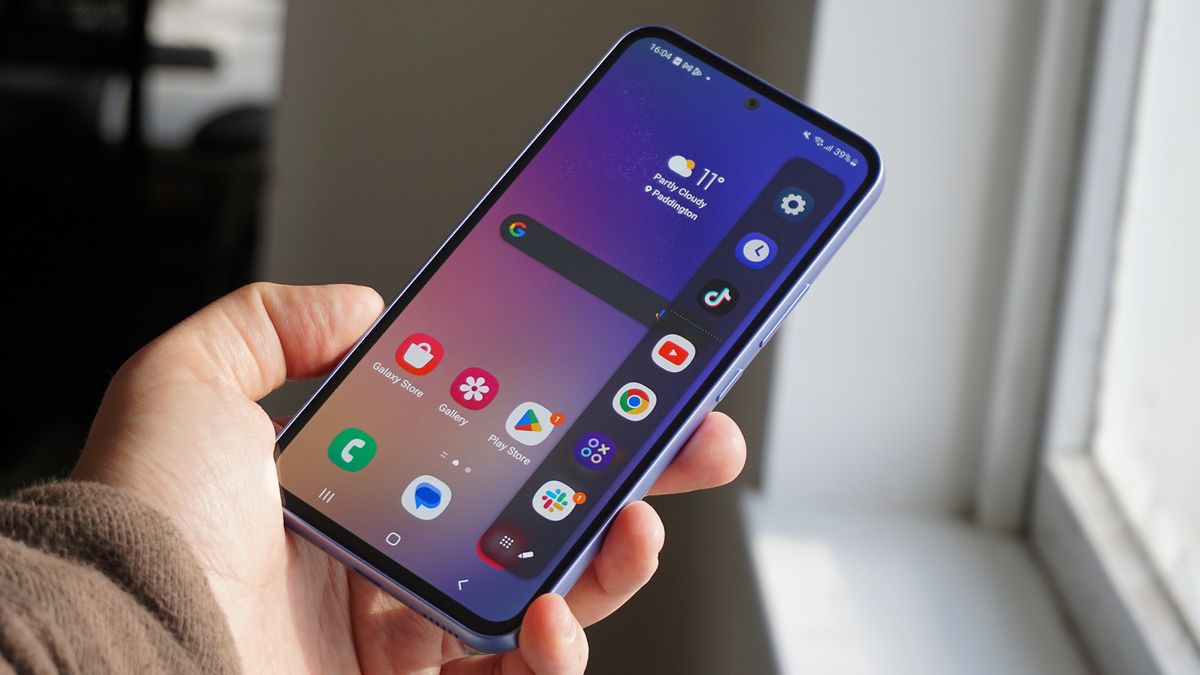Dear reader, it’s been an interesting week. On July 19, 2024, a CrowdStrike outage took a lot of infrastructure offline, including core airline systems; however, some airlines fared worse than others. Notably, Delta did not recover as quickly as American Airlines or United, canceling 1,000 flights on the 22nd alone.
However, on Monday, July 22, 2024, things were back to mostly normal, and I was getting ready to board a United flight to Columbus, Ohio, to attend the MLS All-Star Game. I never made it, but my luggage did.
After waiting for a while and being unable to find a safe flight route due to “weather and operational” issues, United cancelled the flight. It wasn't a pretty outcome, but I thought I could get off and go home. However, there was a problem.
I usually travel with a backpack and a handbag. Inside the latter, in a pocket, is an AirTag, which has been with me since Apple announced the item tracker in 2021. I will never travel without one again, and I implore you to get one, too.
But instead of my usual strategy of carrying a carry-on, I decided to check my bag. It was my first mistake. When my flight was cancelled, I was told to go to baggage claim and look for it. I soon realised that wasn't going to happen. Oddly, I saw on my iPhone's FindMy app that the luggage was indeed outside the plane.
I spoke to an agent near baggage claim and was told that United would deliver my bag to me tomorrow… for free! It seemed like a nice ending, almost happily ever after. I told the agent that my AirTag indicated the bag was nearby, but was informed that there was no “domestic pickup.” However, I kept an eye on the AirTag and saw the bag bouncing around Newark Airport.
Hmm, that doesn't seem right.
To my surprise, the next day the AirTag was near a gate and soon moved to a taxiway and then to a landing strip. Then, I received an alert that it was in the middle of Ohio.
Instead of holding onto my bag in New Jersey, United had sent it to Ohio. But the problem was that United’s baggage tracking system, which I’ve used successfully in the past, wasn’t showing any of this. I called United and they said my bag was still in New Jersey and they would deliver it… until I told them I was tracking it with an AirTag and they realized it had been loaded onto a flight to Ohio.
Without Apple’s AirTag, I would have had no idea where my bag was. This process could have taken even longer or I may never have gotten my bag back. A representative also told me that there were around 5,000 bags at EWR alone; considering the recent service outage and disruptions, I don’t doubt that.
Faith in AirTag and United

However, I spoke to another United representative on the phone, and thanks to the AirTag, we were able to pinpoint when it had arrived and confirmed that it had arrived safely. I was then promised that it would be on the next flight back. I kept an eye on my AirTag’s progress. It didn’t land on the first one, but it did make it successfully on the last flight back from CMH to EWR, and I was able to track it as it made its way back to the gate, onto the taxiway, onto the runway, and then after 20 minutes of waiting for a new report, I saw that it was over Pennsylvania again.
I knew the flight number, so I was anxiously tracking it. Almost in sync with the plane landing, FindMy started updating (see screenshots below), but it took me a long taxi ride to the gate and then back to the baggage claim area of Newark Airport, Terminal C, where I first saw it after my flight was cancelled.
I went to the airport and on the way there I got a worrying text from United saying, “We’re still looking for your delayed luggage…” I decided to ignore it and once inside I opened FindMy on my iPhone and started using Precision Finding, which, once about 20 feet away, told me to go straight to the right, which led me to my luggage next to baggage claim. We eventually met up 24 hours later.
I’ve never been more grateful for using an AirTag — so much so that I’ll never travel without it again, and I even bought a few more this week. Most of the time, United’s baggage tracking system works, but when it doesn’t, you’re completely in the dark. If I hadn’t had an AirTag, I wouldn’t have known my luggage wasn’t where the airline said it was, and it could have been days before I got it back.
It's an essential carry-on for any airplane trip, whether as a carry-on that can be checked in or as checked luggage. While you'd hope you wouldn't need to rely on it, the fact that it's on Apple's FindMy network, which uses over a billion devices to get a precise location, the fact that it can provide turn-by-turn directions when you're near it, and that it's safe to use on airplanes, make it essential.
It’s also an investment that still offers value: A single AirTag costs just $29 (or $99.99 for four of them), and when the battery runs out, the user can replace it with a standard CR2032 battery. I’ve had that same AirTag since 2021, and I’ve had to replace the battery every 12 to 14 months, depending on usage. I’ve replaced it three times, and Apple promises it lasts about a year, but it varies slightly.









